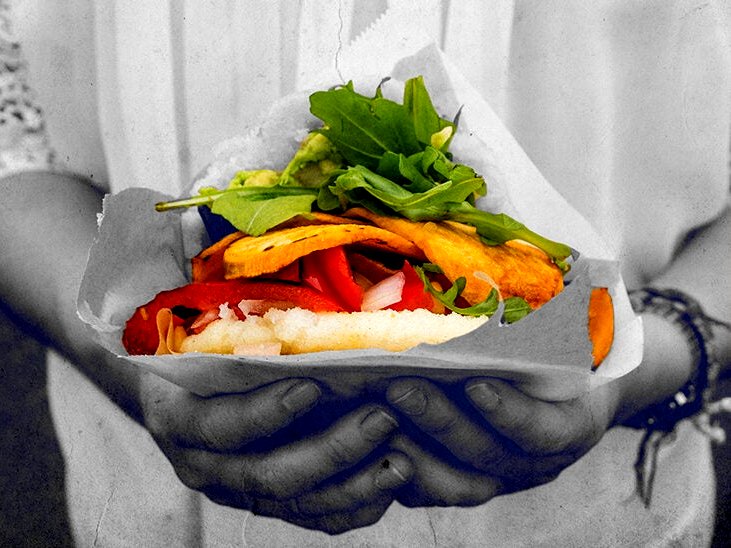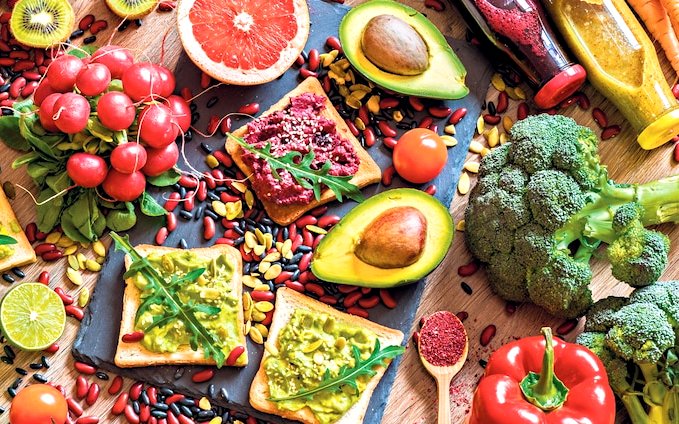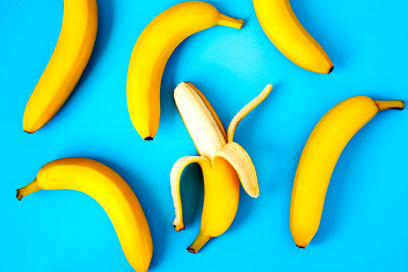Welcome to the fascinating world of plant-based eating! Congratulations on making the commitment towards leading a healthier, more eco-friendly lifestyle by adopting a vegan diet. As a vegan, it is of utmost importance that you understand which foods you may and cannot consume. Though nature has provided us with many plant-based foodstuffs, some animal products remain prohibited for consumption. Fear not; as we embark on this comprehensive guide we'll delve into this perplexing question that bedevils vegans worldwide: What foods cannot vegans eat? Join us as we help unravel the confusing maze of delectable foods and ingredients you must avoid, providing valuable guidance on adopting a plant-based diet. Our thorough exploration will unearth an array of diet restrictions, from frivolous animal products to unfamiliar ingredients that could catch you off guard. Explore the fundamentals of plant-based diets, equipping yourself with knowledge to craft tasty vegan feasts in alignment with your values. By the time we reach the conclusion of our journey together, you'll possess an encyclopedic knowledge of what vegans cannot consume! Let's join forces in this pursuit!
I. Animal-Based Foods to Avoid
As a vegan, it is imperative that you take steps to remove all animal-derived foods from your diet in order to uphold its principles. Meat, poultry and seafood are the obvious culprits - though any products produced using animal sources must also be avoided by vegans - but there are many more non-vegan items you should steer clear from as well.
Dairy Products
Vegans must avoid dairy products such as milk, cheese, butter, yogurt and ice cream because these irresistible treats contain animal milk that contradicts the core principles of veganism.
Eggs
Eggs are another insidious food source which may sneak their way onto our plates even though they may not technically count as meat but nevertheless contain animal by-products and must be avoided. Vegans must therefore also abstain from mayonnaise containing products as well as cakes and cookies that contain eggs.
Identifying Non-Vegan Ingredients
However, identifying non-vegan ingredients such as egg can be more difficult than anticipated; therefore it requires keen scrutiny of ingredient lists before purchasing products containing these hidden components. Baked goods such as bread, cookies and muffins often contain dairy, eggs and honey while candy sweets such as gelatin could contain animal bones and skin gelatin; even seemingly innocent beverages like beer and wine may use animal products such as fish bladder for filtering purposes and might therefore fall outside of vegan guidelines.
Plant-Based Alternatives
Cutting all animal foods out of one's diet may seem daunting, but with versatile plant-based alternatives the options are limitless. Vegans can find an abundance of protein sources such as beans, lentils, tofu, tempeh and seitan. Dairy replacements like soy, almond or oat milk work wonderfully while vegan cheese varieties continue to expand using nuts or soy products to produce delectable flavors that rival that found in dairy cheese varieties.
Scrutinizing Ingredient Lists
As a vegan, however, one must be constantly on guard by carefully scrutinizing ingredient lists and verifying if a specific product adheres to vegan principles. Always read ingredient labels when purchasing food items because some contain animal components which may not be easily detectable by consumers.
Mindful Food Choices
Adopting a plant-based lifestyle generally entails forgoing animal-derived foods, from meat and dairy to eggs and derivatives. Such mindful food choices help minimize harm to both animals and the environment while optimizing one's health. But are there any unexpected non-vegan ingredients present in our foods that might pose potential threats? In the following section we'll investigate that further.
II. Animal-Based Foods to Avoid
As an advocate of veganism, one must remain wary of indulging in meat, dairy and egg products; one must also remain aware of ingredients that cannot be considered vegan-friendly. Take sugar as an example; certain varieties come from bone char, produced through the needless slaughter of innocent animal bones. Veganism seeks to remove animal products from food chains, rendering even seemingly harmless white sugar unappetizing to vegans. Activists may prefer more sustainable options like coconut sugar or maple syrup that have less of an environmental footprint.
Bright Red Food Colorings
Bright red food colorings contain ingredients sourced from microscopic bug bodies; combined with pesky bug juice extracts, these artificial hues find their way into various fruit-based treats such as drinks, yogurt and ice-pops. Unfortunately, vegan and non-vegan colorings often seem indistinguishable at first glance; for optimal vegan results it's wise to look out for labels which verify existing colorings as adhering to vegan values.
Be wary, there's more! Although modern ingredient lists provide greater transparency into the contents of our food than ever before, some additions still contain animal products unwittingly. Glycerine or certain vitamins - essential components to making your favorite meals taste fantastic - could have an unwitting non-vegan source. Do not despair though - with some research and diligence towards finding vegan-specific labels you can avoid accidentally indulging in any unnecessary animal-derived substances.
Honey
Honey is a source of sweetener made by bees that many vegans choose to forego due to its production process - for ethical and environmental considerations alone! Vegan advocates strive to replace even seemingly harmless ingredients such as honey with suitable vegan substitutes such as agave nectar, maple syrup or date syrup for better sustainability.
Be mindful of unexpected ingredients, ever vigilant of possible errors that might include animal-derived products in your food chain, and remain committed to vegan principles. With dedication and the proper understanding of plant-based alternatives for animal products, delicious meals can still be created without harm to animals! Stay tuned in this section as we highlight tantalizingly tasty alternatives with amazing health benefits for animal-derived counterparts.
III. Surprising Ingredients to Watch Out For
Make the switch to plant-based eating is a worthy pursuit, yet can seem daunting at times. Don't worry; there is an abundance of delicious vegan alternatives for non-vegan food items that are both delicious and nutritional. From faux meats to cheese and egg alternatives, veganism has something to offer everyone on its journey!
Plant-Based Meat Alternatives
Plant-based meat alternatives like Beyond Meat, Impossible Foods and Gardein have become an increasingly popular trend over time, providing tasty alternatives that imitate real meat through cutting edge cell technology. These tantalizing alternatives can replace real meat in traditional recipes such as veggie burgers or carnivorous feasts such as spaghetti with meatballs while providing essential protein that fuels our bodies.
Vegan Cheese
Vegan cheese has become an increasingly popular replacement for dairy cheese, providing an array of textures and delectable flavors to create vegan pizza, quesadillas, cheeseburgers and other dairy-based meals without compromise - leaving out dairy doesn't mean sacrificing rich, cheesy taste either; nutritional yeast can add this characteristic flavor profile without losing its signature tang.
Navigating Egg Substitutes
No matter the occasion or motivation behind your baking endeavors, navigating egg substitutes may seem intimidating at first. Don't despair though: silken tofu, soy yogurt and aquafaba (chikpea liquid) are here to save the day and can easily replace eggs in baked goods for the same textures as traditional eggs would provide - making it a win-win situation!
Plant-Based Protein
As well as these tasty alternatives, there are also an abundance of plant-based proteins which can replace traditional animal sources of protein. Legumes, beans and other forms of plant protein such as tofu, tempeh and seitan can easily replace meat in dishes like stir-fries, curries and stews - there's simply no limit to the possibilities!
As with anything new, it is vitally important to exercise caution when replacing non-vegan foods with vegan alternatives. Some processed and artificially sweetened vegan alternatives might contain high levels of sodium or saturated fats; be mindful to read nutrition labels when purchasing any vegan products. Although vegan substitutes may help ease transition, focusing on whole, nutrient-rich foods is best as part of an overall vegan lifestyle diet plan.
As previously discussed, although going vegan can seem intimidating at first, if planned properly and opened to trying new foods it can provide an extremely fulfilling and delicious culinary experience that is both healthy and eco-friendly.
IV. Vegan Alternatives to Non-Vegan Foods
Transitioning to a vegan diet may seem daunting at first, especially if you have spent most of your life eating animal products. But taking steps can make the transition simpler - here are some suggestions that might help:
Begin your research
Acquainting yourself with all aspects of veganism - its foods and restrictions as well as potential advantages - is vital. Incorporating plant-based diets into your recipe repertoire may also prove invaluable.
Take it slowly
Do not try to abruptly phase out meat and animal byproducts from your diet all at once; rather, transition gradually by adding vegan meals into your weekly menu and finding suitable replacements for animal-derived products.
Start small
Start off with comfort food and familiar meals. Try vegan versions of classic recipes you already love before progressing to more complex and unique vegan-based recipes using unfamiliar plant-based ingredients.
Experiment
Experimenting with new ingredients and trying ethnic cuisine such as Indian, Thai or Mexican cuisine which naturally does not include meat can add variety and pizazz to your meals.
Avoid nutritional gaps
Ensure no nutritional gaps arise when changing diets. Supplement your vegan diet with fortified plant-based milks and vitamin B12 supplements while selecting plant-based foods rich in proteins, vitamins, and minerals for a complete nutritional experience.
Dining out as a vegan
Make sure that when selecting restaurants for dining purposes that they check their menus to see how each item is prepared so as to ensure they meet vegan-friendly criteria.
Transitioning to veganism takes effort and perseverance. Each person's journey may vary; take your time figuring out what works best for you - just remember to be kind to yourself as you explore variations in plant-based nutrition, while remaining true to your values and achieving your goals.
Find vegan alternatives at WebMD.
An Abundance of Vegan Food Options to Nourish Body and Soul!
An ambitious vegan lifestyle may be daunting at first, as it involves navigating an intricate web of dietary restrictions and alternative choices. One common question amongst new vegans is what are my food options - yet once you explore vegan cuisine further you will discover an impressive range of delicious yet nourishing plant-based treats to satisfy both body and soul!
As a mindful vegan, it is crucial that you understand which foods align with your ethical convictions, promote physical wellness and contribute to environmental sustainability. A well-balanced vegan diet must encompass an abundance of nutrient-dense whole foods ranging from greens, legumes grains fruits and nuts; although going without animal products may appear restrictive at first, in reality it opens up new world of culinary experience!
To fully experience vegan delicacies, one needs a varied and intricate repertoire of plant-based ingredients that you can mix and blend creatively. From almond flour to chickpea pasta and tofu to jackfruit - there's an array of plant-based alternatives that bring life and vibrancy to our planet's ecosystems! Adopting more conscious food choices allows for nourishment of body, mind, and soul - while protecting its vital ecosystem.




